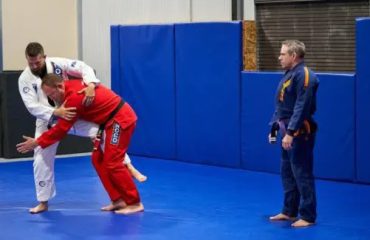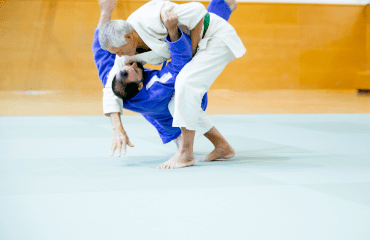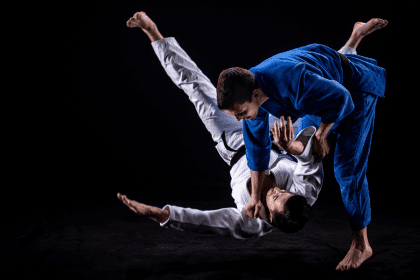
When it comes to maximizing the benefits of judo training, we have to consider the multifaceted impact that judo can have on both our physical fitness and mental well-being. Judo, as a martial art, offers far more than just the ability to throw or grapple an opponent. It’s a comprehensive system that fosters self-confidence, mental toughness, self-defense, and much more. If you’re ready to start your journey and maximize the many benefits judo training has to offer, this guide will walk you through the essential elements to ensure you make the most of your time on the mat.
What Are the Key Benefits of Judo Training?
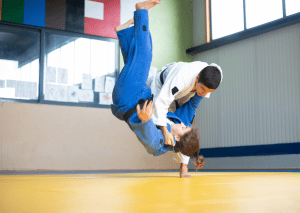
How Does Judo Improve Physical Fitness?
Judo is often regarded as a full-body workout. Unlike many other martial arts, it engages every part of your body—from your core muscles for balance, to your arms and legs for throws and defense techniques. By focusing on physical fitness, you’ll find your strength, flexibility, and improved balance significantly enhanced through consistent judo practice. Judo techniques, such as ne waza (ground techniques), demand endurance and coordination, making it a comprehensive way to stay active and strong. While judo primarily focuses on grappling, some martial arts classes may incorporate striking techniques to provide a more rounded skillset in combat sports.
How Can Judo Enhance Mental Health?
Aside from its physical benefits, judo is exceptional for mental well-being. The potential benefits extend beyond the body; judo teaches you how to manage stress, build self-esteem, and foster mental toughness. The mental focus required in judo, especially during moments of intense competition or randori (free practice), helps sharpen the mind and improve your ability to manage everyday stress. Practicing judo regularly enhances mental discipline, which translates well into your daily life. Many practitioners find that the discipline and focus they develop on the mat carry over into their professional and personal lives, making them more resilient and adaptable.
What Are the Social Benefits of Judo Training?
Judo training isn’t just about the individual; it’s also about joining a larger judo community. Meeting new friends during judo classes fosters a sense of belonging and teamwork. Whether you’re practicing for fitness, competition, or self-defense, the relationships built within this community can help you stay motivated and engaged in your training. Plus, as judo is an Olympic sport, you can participate in competitions that promote camaraderie and mutual respect. Many young man have found lifelong friendships and mentors through their judo journey, creating a support network that extends far beyond the dojo.
How Can You Get Started with Judo Training?
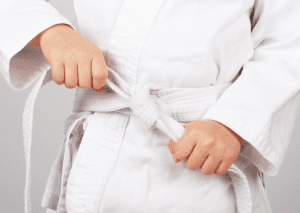
What Should You Expect in Your First Judo Class?
Your first judo class will likely focus on the fundamentals. You’ll learn basic judo techniques, such as throws and holds, while also getting familiar with the traditions and etiquette of the dojo. Techniques like ne waza and randori are central to judo, and beginners will start learning the core movements needed for effective grappling and defense. Don’t be intimidated if you see more advanced students practicing complex moves; everyone starts as a beginner, and judo’s philosophy emphasizes mutual welfare and benefits for all practitioners.
How Can You Prepare for Your First Judo Class?
Before stepping onto the mat, ensure you have the proper attire—typically a judo gi. Be prepared for a physical workout, as judo practice involves rigorous physical activity. Warming up is essential to prevent injuries and get your body ready for the session. Keep in mind that your first class is the starting point of your judo journey, and there’s plenty to learn, so stay patient and focused.
How Do You Stay Motivated as a Beginner?
Judo can be challenging at first, but setting realistic goals will help keep you on track. Celebrate small victories—whether it’s mastering a new technique or simply gaining more confidence on the mat. Regular attendance and focusing on progress rather than perfection are crucial to staying motivated in your training.
How Does Judo Enhance Your Physical and Mental Well-Being?

How Does Judo Teach You Mental Toughness?
Judo challenges you both physically and mentally. Mental toughness is developed as you learn to face and overcome challenges in the dojo. Whether it’s dealing with a formidable opponent or pushing through a tough training session, martial arts builds resilience. Staying composed under pressure is a skill that extends well beyond the dojo.
How Can Judo Help in Stress Management?
One of the key health benefits of judo is its impact on stress management. The intensity of judo practice requires you to stay present and focused, helping you clear your mind of external worries. By concentrating on the movements and techniques, you can reduce stress and find relief from anxiety.
How Does Judo Improve Your Overall Well-Being?
Consistent judo practice contributes to long-term well-being by combining physical fitness with mental clarity. It’s not just about staying active, but also about maintaining a balanced lifestyle that promotes both body and mind health. The positive effects of judo are noticeable, from improved mood to enhanced physical endurance.
What Role Does Discipline Play in Judo Training?

How Does Discipline Help You Progress in Judo?
Discipline is at the core of judo. Judo teaches that success is not just about winning or losing, but about the effort you put into your training. Consistency and dedication are key, and those who commit to regular practice will see improvements not just in their judo techniques but also in their overall character development.
How Does Discipline Affect Other Areas of Your Life?
The discipline gained from judo training extends far beyond the dojo. You’ll find that the lessons learned—such as perseverance, focus, and respect—can be applied to many other aspects of life, from your career to personal relationships. Judo practitioners often report improved time management and a better ability to stay calm in stressful situations.
How Can Discipline Lead to Long-Term Success in Judo?
Patience and persistence are necessary to excel in judo. Over time, disciplined practice will lead to improved skills, greater self-confidence, and the ability to master more advanced techniques. It’s this long-term dedication that makes judo both rewarding and fulfilling.
Why Is Judo Considered a Full-Body Workout?
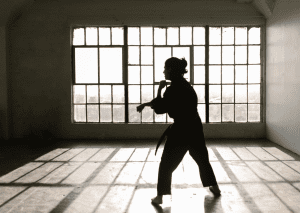
What Are the Main Muscle Groups Involved in Judo?
Judo engages nearly every muscle in your body. From your core to your legs and arms, the techniques involved in judo require strength and coordination. Whether you’re executing a throw or defending against an attack, you’ll notice that every part of your body is involved.
How Does Judo Build Cardiovascular Endurance?
Judo’s dynamic nature also contributes to improved cardiovascular health. The short bursts of intense activity—whether during sparring or drills—keep your heart rate elevated, making judo an excellent form of cardio.
How Does Judo Compare to Other Martial Arts Workouts?
Judo stands out among martial arts for its emphasis on grappling and throwing, which engages your entire body in ways that other martial arts might not. The focus on maximum efficiency through the use of leverage and technique ensures that even those without significant brute strength can excel in this sport.
What Are the Long-Term Health Benefits of Practicing Judo?
Practicing judo regularly offers long-term health benefits, such as improved flexibility, stronger muscles, and a reduced risk of injury due to the emphasis on safe falls and body mechanics. Moreover, judo helps prevent conditions like childhood obesity, as it encourages physical activity from a young age. The cardiovascular benefits of judo are also significant, contributing to improved heart health and endurance over time. Additionally, the discipline and body awareness developed through judo practice can lead to better posture and reduced risk of chronic pain conditions.
How Does Judo Foster a Sense of Community?
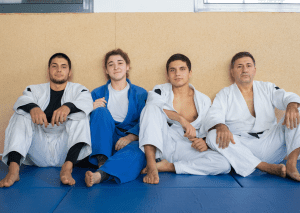
The judo community is one of the most rewarding aspects of judo training. As you advance in your practice, you’ll meet new friends who share the same passion for the sport. This community helps foster personal growth and provides the support necessary to keep you motivated. The bonds formed on the mat often extend beyond the dojo, creating a network of like-minded individuals who support each other in various aspects of life. Many judoka find that the sense of belonging and camaraderie in the judo community becomes an integral part of their social support system.
How Does Judo Improve Your Self-Defense Skills?
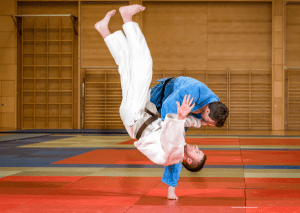
Judo is an effective form of self-defense. The ability to control and neutralize an opponent through grappling techniques makes judo a valuable tool for protecting yourself. Self-defense techniques learned in judo classes are practical and can be applied in real-life scenarios. Judo’s emphasis on leverage and balance allows practitioners to defend themselves against larger, stronger opponents. Furthermore, the confidence gained through judo training can serve as a deterrent, potentially de-escalating confrontations before they become physical.
How Can You Build Confidence Through Judo?
By mastering specific techniques in judo, you gain a sense of accomplishment that translates into greater self-confidence. Every time you step onto the mat and face a new challenge, you grow stronger both physically and mentally. This increased confidence often spills over into other areas of life, improving performance in work, school, and personal relationships. Moreover, the process of overcoming obstacles and fears in judo training builds resilience and a positive self-image that can last a lifetime.
What Can You Learn from Judo’s Principles?
At the heart of judo are the principles laid out by its founder, Jigoro Kano. These principles—such as maximum efficiency and mutual respect—guide practitioners not just in their training, but in their everyday actions as well. Learning these principles fosters a deep respect for both the art and for others. The concept of “mutual welfare and benefit” encourages judoka to consider the well-being of their training partners and competitors, promoting a sense of ethical responsibility. This philosophical aspect of judo can lead to personal growth and a more mindful approach to life’s challenges.
What Are the Key Techniques You Should Focus On in Judo?
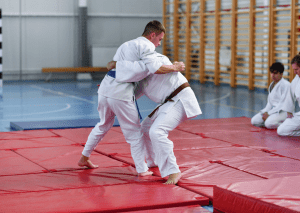
Beginners should focus on mastering the basics, such as throws, pins, and submissions. Regular training in these techniques will build a strong foundation for more advanced movements. Consistency is key, and as you continue to practice, you’ll develop the skills needed to succeed in judo. It’s important to pay attention to proper form and technique from the start, as this will prevent bad habits and reduce the risk of injury. As you progress, you’ll find that these fundamental techniques form the basis for more complex strategies and combinations in competition and randori.
How Can Judo Training Help You in Other Sports?
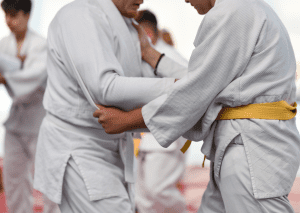
Because judo emphasizes balance, coordination, and flexibility, it’s an excellent complement to other sports. Athletes from various disciplines—whether it’s kung fu, wrestling, or football—can benefit from the agility and body control developed through judo training. The explosive power cultivated in judo can enhance performance in sports that require quick bursts of energy, such as sprinting or basketball. Additionally, the mental focus and strategic thinking developed in judo can translate to improved decision-making and composure in high-pressure situations across all sports.
Ready to Start Your Judo Journey?

Are you ready to reap the benefits of judo? At NOCO Jiu Jitsu and Self Defense, we offer world-class judo training that can help you develop your self-defense skills, improve your physical fitness, and build lasting relationships within the judo community. Sign up for our judo classes today and start practicing with experienced judo practitioners who will guide you every step of the way. Whether you’re looking for an engaging martial art or a fun way to stay active, NOCO Jiu Jitsu and Self Defense have the perfect class for you!
Maximizing the benefits of judo training comes down to consistency, discipline, and a willingness to learn. As we’ve explored, judo is more than just a sport; it’s a way to develop both physical fitness and mental toughness. We encourage you to embrace this martial art not just for its self-defense techniques but for the personal growth it offers. So, what are you waiting for? Start training and experience the transformative power of judo at NOCO Jiu Jitsu and Self Defense!
Frequently Asked Questions:
- What are the key benefits of judo training?
Judo offers physical fitness, mental well-being, self-confidence, mental toughness, self-defense skills, and social benefits.
- How does judo improve physical fitness?
Judo is a full-body workout that enhances strength, flexibility, balance, endurance, and coordination.
- What can I expect in my first judo class?
You’ll learn basic techniques, throws and holds, and get familiar with dojo etiquette and traditions.
- How does judo help with stress management?
Judo requires focus and presence, helping to clear your mind of external worries and reduce stress and anxiety.
- Why is judo considered a full-body workout?
Judo engages nearly every muscle group and involves dynamic movements that provide both strength training and cardiovascular exercise.
- How does judo foster a sense of community?
Judo classes provide opportunities to meet new friends, join a larger judo community, and build supportive relationships.
- How effective is judo for self-defense?
Judo teaches practical grappling and throwing techniques that can be applied in real-life self-defense scenarios.
- What are the long-term health benefits of practicing judo?
Regular judo practice can improve flexibility, muscle strength, and cardiovascular health, and reduce the risk of obesity and chronic pain conditions.
- How does judo build confidence?
Mastering techniques, overcoming challenges, and progressing in skills help build self-confidence that extends beyond the dojo.
- Can judo training help in other sports?
Yes, judo develops balance, coordination, flexibility, and mental focus, which can enhance performance in various other sports.

